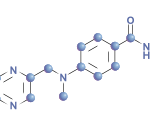However, questions about the safety of jakinibs have confused the picture. The FDA ordered a post-marketing safety clinical trial when it first approved tofacitinib for rheumatoid arthritis (RA) in 2012. Researchers designed the phase 3B/4 ORAL surveillance trial to determine whether tofactinib use was associated with an increased risk of cardiovascular events and malignancies.4
The study included over 4,000 patients with RA taking methotrexate. The participants, who had a mean age of 60 years, also each had one or more cardiovascular disease risk factors. The researchers compared outcomes of patients taking 5 mg or 10 mg of tofacitinib twice daily with those taking tumor necrosis factor-α (TNFα) inhibitors. Primary outcomes were major adverse cardiovascular events (MACE) and malignancy.
The full data from the study have not been released, but the drug company Pfizer and the FDA have released topline results in several press releases. Based on early data from the trial, in 2019 the FDA mandated a Boxed Warning for tofacitinib with respect to an increased risk of blood clots and death at the higher dose.
Newer data from the trial were released this year. Noninferiority of tofacitinib was not met for MACE or malignancy. In combined analysis of both doses of tofacitinib, hazard ratios were 1.33 (95% confidence interval [CI] 0.91–1.94) and 1.48 (95% CI 1.04–2.09) respectively, compared with TNFα inhibitors. The risk of venous thromboembolism and death was higher at both the higher and lower doses of tofacitinib. This most recent update from the study was the first to show a potential increased risk of cancer in patients taking jakinibs.
In September 2021, the FDA updated its earlier Boxed Warning to reflect an increased risk of MACE, malignancy, thrombosis and mortality for tofacitinib as well as for the jakinibs baricitinib and upadacitinib.
“I think a lot of us were surprised that the FDA warning extended to all jakinibs and all indications,” said Dr. Costenbader, “and now we are in a bit of holding pattern. So talk to your patients about the potential increased risk, and acknowledge that we are still waiting on complete data. I am worried about using jakinibs more in my patients with underlying malignancy, [cardiovascular disease] or [venous thromboembolism] risk factors. Shared decision making remains paramount.”
‘We have two new oral agents for two severe rheumatic diseases. Perhaps a new day is dawning.’ —Dr. Costenbader
Improving Clinical Care
ARCTIC REWIND Trial


